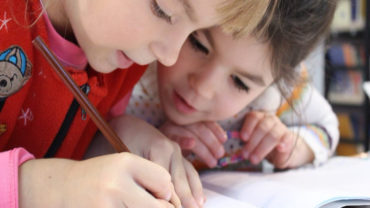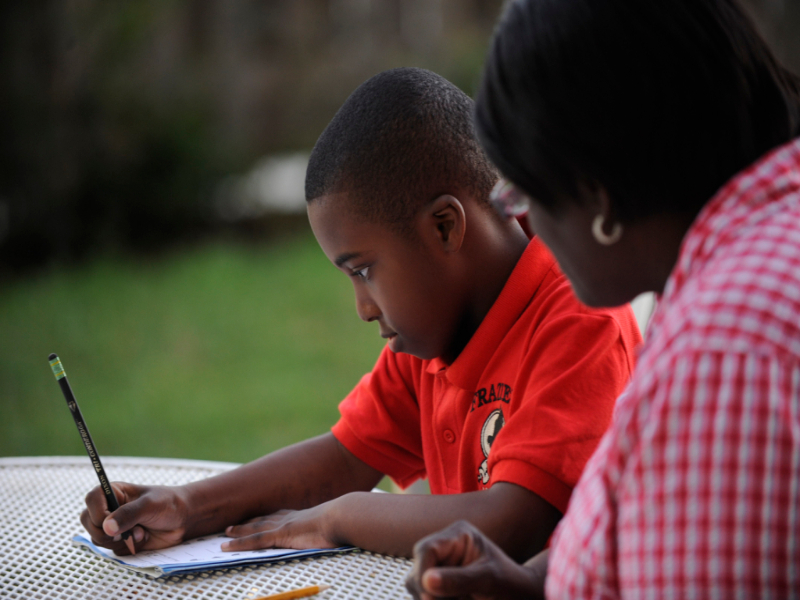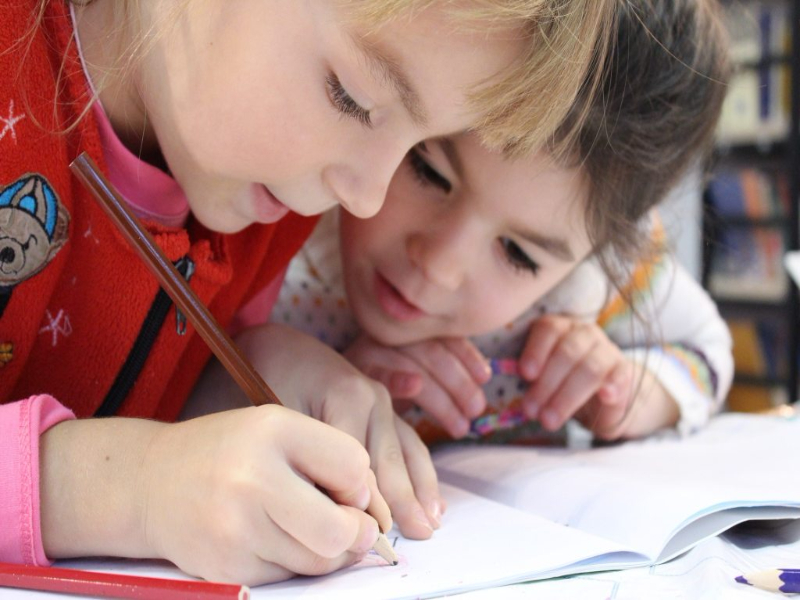Via Red Tricycle: 12 Simple Ways to Help Your Kids Focus
We’ve all been there: homework battles, begging the kids to write a thank you note or even put on their own shoes. Just like grown-ups, kids lead busy little lives with a lot on their minds and to-do lists. If your kiddo could use some help concentrating, try out one or more of these tips we’ve culled from teachers, moms and dads in our community. Scroll down to read more.
1. Start with something fun. Before doing a big task they have to focus on (like homework, or thank you cards) have your child read a book they enjoy (it can just be a picture book if they can’t read words yet).
2. Feed their brains. Try some of these vitamin-packed snacks to keep tummies from rumbling and distracting them.
3. Move it, move it! Do jumping jacks or laps: you don’t need to fit in a full cardio session, but a little blood flow and stimulation actually helps kids concentrate.
4. Break it up. If your kiddo has a big project to tackle, break it up into smaller amounts of time and take breaks for stretching and sips of water. Put a timer on for 2 minutes, 5 minutes, etc. and gradually build them up to longer periods of time.
5. Shut it down. Clear out the distractions: this means iPads and computers (unless required for homework), make sure mom and dad’s phones are on mute and make sure toys and gadgets are not within reach.
6. Create a soothing environment. Dim the lights or light a candle. We’re not suggesting you do your schoolwork like they did in the oldy-moldy days of kerosene lamplight, but keeping things calm and serene helps kids relax, which helps them focus.
7. Use essential oils. Peppermint essential oil can help kids stay alert and focused. Just put a little bit on a tissue and let them inhale it through their nose. Or use a bit in a diffuser to make your house minty “concentratey” fresh.
8. Work with them. if you have a kid struggling with homework or reading, don’t just set them up at a desk and leave. You may not need to stay the whole time, but giving encouragement, eye contact, and body contact can give kids confidence and keep them from giving up.
9. Be realistic. Have reasonable expectations based on age and ability. As a rule of thumb, don’t expect kids to focus on one thing for a time frame more than 5 times their age. For example, a kid of 5 years should not be expected to focus beyond 25 minutes (unless it’s an episode of Paw Patrol!).
10. Reward time with time. Have your kiddo knock out the “hard stuff” like getting dressed, brushing teeth, and shoes on right away in the morning with the reward being 10-15 minutes of relaxing (hopefully together) or letting them lounge on the couch with a book. This won’t work every morning, and it probably won’t work the first time, but when kids start to realize they can get through the “tasks” faster for something like more time together before school, they will begin to try harder.
11. Model good focus. Don’t jump from subject to subject or distract your child with questions while they are working, no matter how long your mental to-do list is.That means even focusing on taxes or bill paying can actually model good behavior for kids! And many studies show that early readers live in a household where one or more parents regularly reads independently. Try to make at least one evening a week screen-free.
12. Try to make it fun. Help your kiddo come up with goofy rhymes, draw silly pictures, use colored pencils, read math problems in funny voices…whatever you can do to get them giggling and relieve stress and pressure.
What are your best tips and tricks for helping kids concentrate? Share them with our community in a comment below.





